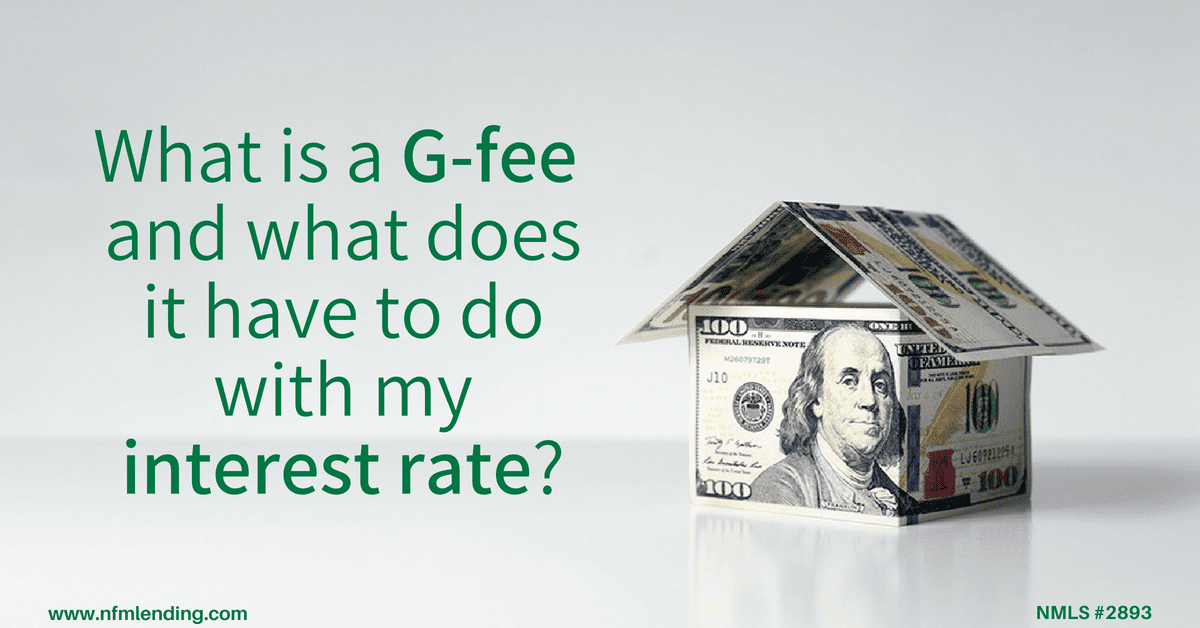
By Kelsey Trumbull
Jul 3, 2018As you move through the homebuying process and have to choose a mortgage, each option will present an interest rate. This rate determines how much you must repay the lender as a part of your monthly mortgage payment. While you might be familiar with interest rates, there is probably a component of mortgage rates you haven’t heard of—the G-Fee. If you just asked yourself ‘what is a G-Fee and what does it have to do with my interest rate’, you’re not alone.
So, what is a G-Fee?
Short for ‘Guarantee Fee’, the G-Fee covers the servicing of Fannie Mae, Freddie Mac or Ginnie Mae (government-sponsored enterprises, or GSEs), who provide government backing for some mortgage loans. Think of it as insurance for the loans they buy and/or sell to ensure payments of both principal and interest are made in the instance the borrower defaults. This fee is only included in interest rates for single-family loans.
G-Fees are only a small contributor to the overall interest you pay. The majority goes to whoever bought your loan (a bank or investors) and the servicer who collects your monthly payments. The G-Fee is typically not disclosed to borrowers and if they have an impact on interest rates, it is usually minor. However, even as the smallest contributor, you should know how they could potentially impact your rate.
The Federal Housing Finance Authority (FHFA) oversee the GSEs and can adjust G-Fees if they choose. These adjustments don’t always have to do with the economy, the Federal Reserve policy, or even the housing market. In 2012, for example, Congress used increased G-Fees to bridge the gap incurred by payroll tax cuts.
What does it have to do with my interest rate?
You might be wondering if such a small fee can impede your ability to buy a home. Simply put—yes, it can. An increase in G-Fees means there could be an increase on interest rates in general. As the borrower paying interest, that means more money out of your pocket. However, if the G-Fee is lowered it benefits the borrower and makes buying a home more affordable.
When choosing a mortgage, there are options that impact the interest rate throughout the life of your mortgage, such as Fixed-Rate or Adjustable Rate (ARM) mortgages. You can also consider locking in your interest rate to ensure yours will stay the same regardless of changes.
As small as G-Fees may be, it is important to know what they are and the potential impact they present. You can consider your mortgage options and make an informed decision on which is right for you.
If you have any questions about G Fees, locking in an interest rate, mortgages, or the homebuying process, contact one of our licensed Mortgage Loan Originators. If you are ready to begin the process, click here to get started!
These blogs are for informational purposes only. Make sure you understand the features associated with the loan program you choose, and that it meets your unique financial needs. Subject to Debt-to-Income and Underwriting requirements. This is not a credit decision or a commitment to lend. Eligibility is subject to completion of an application and verification of home ownership, occupancy, title, income, employment, credit, home value, collateral, and underwriting requirements. Not all programs are available in all areas. Offers may vary and are subject to change at any time without notice. Should you have any questions about the information provided, please contact us.